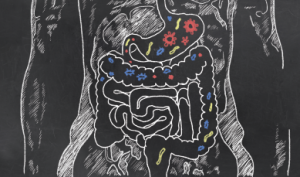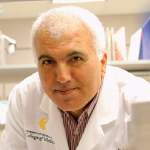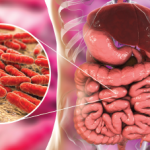
T. L. Furrer / shutterstock.com
Patients with a specific genetic predisposition for rheumatoid arthritis (RA) may want to take precautions when consuming certain types of meat, dairy and produce grown with cow manure, according to a new study out of the University of Central Florida (UCF) in Orlando.
The study, which assessed 100 RA patients, published in the journal Frontiers in Cellular and Infection Microbiology in January, linked the presence of the bacteria Mycobacterium avium subspecies paratuberculosis (MAP) with triggering RA in patients who have a mutation in the genes PTPN2 and 22, genes that regulate T cells.1 MAP belongs to a family of bacteria that includes leprosy and tuberculosis (TB) and remains difficult to treat.
The typical onset for RA in the 1.3 million adults in the U.S. who have it ranges from 40–60 years old. Three times as many women have it as men.
Lead researcher Saleh A. Naser, PhD, professor and associate director of the Burnett School of Biomedical Sciences at UCF, says the majority of rheumatoid arthritis patients—78% of those studied—have those genetic mutations, and when they are present, there’s a greater chance of finding MAP in the bloodstream.
T Cell Regulation

Dr. Naser
“The function of those T cells is to keep an eye on who comes and who goes,” Dr. Naser says. “They alert the immune system to take measures and respond to clear the invading pathogenic bacteria.” If there’s a mutation in those genes, however, the protein they make is no longer functional, and those immune cells can’t turn off the switch when the pathogen is gone, which results in further inflammation.
“MAP keeps the immune system on alert,” Dr. Naser says. “If someone has both the genetic mutation and MAP bacteria in their system, that will mean bad news to the patient, who will experience severe inflammation symptoms.” MAP not only flips the switch to turn RA on in predisposed patients, its presence in the bloodstream can make inflammation symptoms worse in patients already diagnosed with RA.
It’s estimated that more than 50% of dairy farms in the U.S. are contaminated with MAP, and more than 90% of dairy herds may be affected, although cattle may not show outward signs of infection.2 A potentially fatal disease in animals worldwide, MAP has been implicated in Johne’s disease, found in ruminants that include cattle, sheep and goats. The bacteria inflames the lining of the animal’s bowel and severely damages the gastrointestinal tract so nutrients cannot be absorbed. Milk production falls off, and the animal deteriorates and may die without treatment.3

